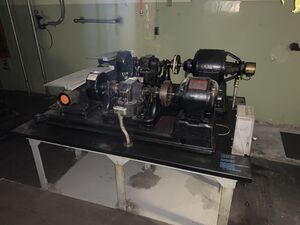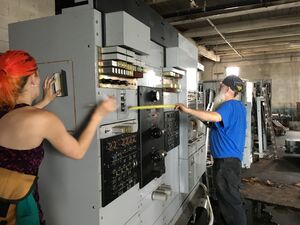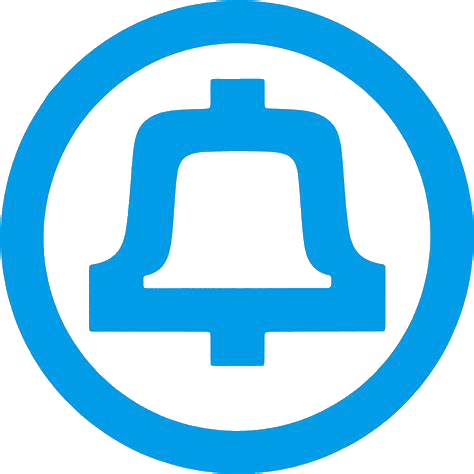CMS:803C Ringing and Tone Plant


The 803C Ringing and Tone plant is an exhibit that demonstrates how ringing and tones were created in large metropolitan areas in the Bell System. It consists of a P-type motor generator set (known as a ringing machine) which was salvaged from the West office in Seattle, and a control board that served the Pearl St. office in Hartford CT. This tone plant was notable for creating the sweet sounding "city ring" tones that were emblematic of AT&Ts service in large cities for much of the 20th century.
Background
Both parts of the 803C plant were acquired by the Connections Museum at different times, and then mated together to make a functioning exhibit.
P-Type Ringing Machines
The ringing machine and its sibling were originally installed in the West central office on California Ave sometime in the early 1920s. They served that office until at least the 1970s, when they were shut down, and left on their table in the basement, still bolted to the floor. In late 2021, volunteer Sarah Autumn was talking to a Lumen outside plant technician, who told her of the machines existence. She reached out to the central office technician in West, and got permission to come look at the machines.
The machines were removed by museum volunteers in January of 2022. In addition, museum volunteers recovered pieces of 1XB equipment that were later installed in their switch, and parts that would later be retrofitted into the ringing control board.
803C Control Board

The control board, and its associated KS-5397 ringing machines were originally installed in the Pearl St. office in Hartford, CT in the early 1960s. Sometime in the late 1980s, the electromechanical switching system there was decommissioned, and along with it, the ringing and tone plant as well. The control board and its associated motor generators were recovered by Jim Day, of West Haven, CT. The equipment sat for several years in Jim's warehouse before he decided to donate it to the museum. In 2022, volunteers Sarah Autumn and æstrid Smith traveled to Connecticut to palletize the equipment for transport. Sarah drove it back to Seattle in the Fall of 2022, where it was temporarily housed in the museum's offsite storage until room could be found to display it in the museum.
